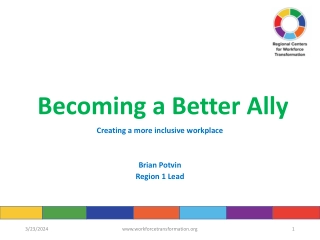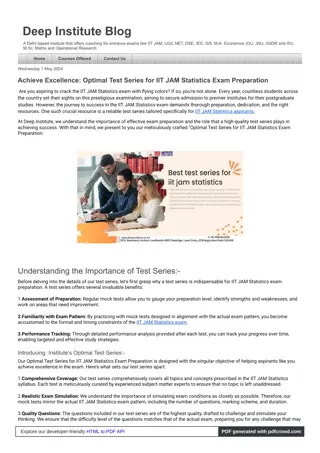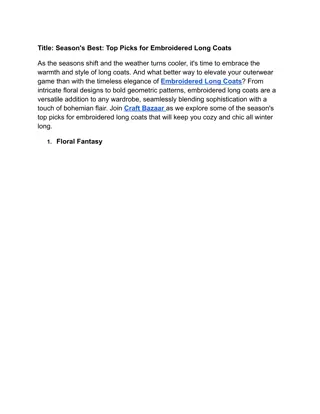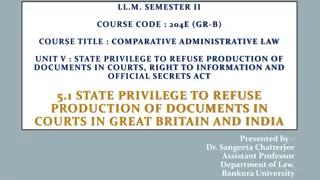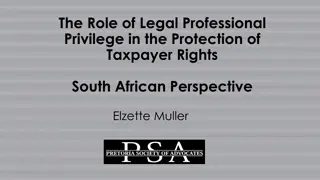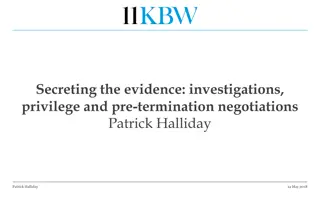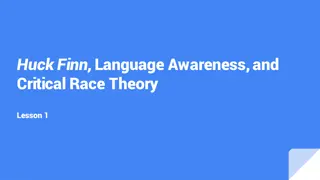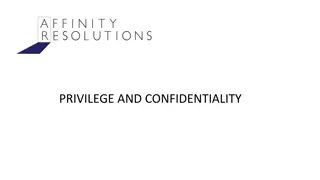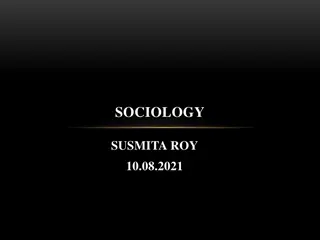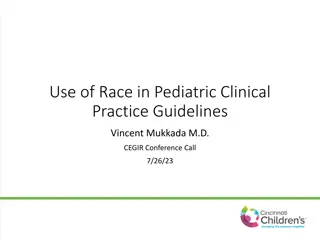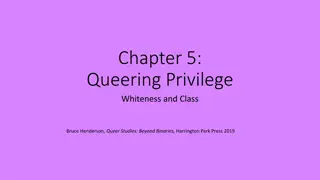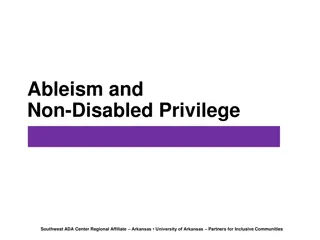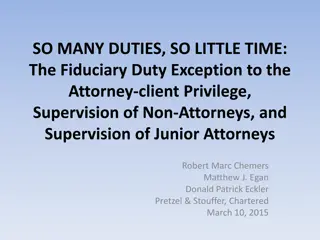Insightful Book Club Picks for Thoughtful Discussions on Race and Privilege
Thought-provoking book club picks for 2020-2021 explore topics of race, privilege, and feedback discussions around White Fragility and Rules of Engagement. These selections encourage open dialogue, trust-building, and self-reflection on challenging yet essential subjects.
Download Presentation

Please find below an Image/Link to download the presentation.
The content on the website is provided AS IS for your information and personal use only. It may not be sold, licensed, or shared on other websites without obtaining consent from the author.If you encounter any issues during the download, it is possible that the publisher has removed the file from their server.
You are allowed to download the files provided on this website for personal or commercial use, subject to the condition that they are used lawfully. All files are the property of their respective owners.
The content on the website is provided AS IS for your information and personal use only. It may not be sold, licensed, or shared on other websites without obtaining consent from the author.
E N D
Presentation Transcript
Book Club Picks for 2020-2021 2ndTuesday of the month Beginning Sept 8th September - December January - May
White Fragility: Why Its So Hard for White People to Talk About Racism By Robin DiAngelo
Do not give me feedback on my racism under any circumstances Proper tone is crucial feedback must be given calmly You must trust that I am not racist before you can give me feedback Give feedback immediately and privately I must feel safe Acknowledge my good intensions Allow me to explain myself until you realize it was your misunderstanding Chapter 10: White Fragility and the Rules of Engagement
We must build trust Don t judge Don t make assumptions Assume good intentions Places intentions over impact Good/Bad binary Speak your truth May be false beliefs (racism isn t a problem, I don t see color) I don t agree may mean I don t understand Respect No conflict, no calling out racist patterns, focus on intentions, white solidarity Chapter 10: White Fragility and the Rules of Engagement
The Real Rules Feedback is key to our ability to recognize and repair our inevitable and often unaware collusion with racism Feedback is hard to give How, when and where you give it is irrelevant Separate the central point from the delivery I am perfectly safe and can handle it (if not, that is my responsibility to build racial stamina) THANK YOU Chapter 10: White Fragility and the Rules of Engagement
I am feeling attacked or I am sad about racism Haven t done the work to understand White Fragility We have racial insulation and privilege of not knowing Not knowing or being sensitive to the historical context All attention, time and energy shifts to comfort us POC must now comfort us when they aren t allowed to have big shows of emotion Our tears do not feel like solidarity Chapter 11: White Women s Tears
Feelings Gratitude Excitement Discomfort Guilt Motivation Humility Compassion Interest Claims I appreciate this feedback This is very helpful This is hard, but also important I will focus on the message not the messenger It is inevitable that I have this pattern. I want to change it. I need to build my capacity to endure discomfort and bear witness to the pain of racism I have some work to do Chapter 12: Where Do We Go From Here? Behaviors Reflection Apology Listening Processing Engaging Grappling Seeking understanding
Assumptions Underlying Transformation Being good or bad is not relevant Racism is a multilayered system embedded in our culture We are all socialized into the system of racism I don t expect to be aware of my bias without a lot of ongoing effort I have blind spots on racism I must not confuse comfort with safety; as a white person, I am safe in discussions of racism Racism hurts POC 24-7. Interrupting it is more important than my feelings, ego, or self-image. Chapter 12: Where Do We Go From Here?
The Repair 1. Process my reaction with another white person 2. Identify how I have reinforced racism 3. Ask to meet with the person to repair the racism Chapter 12: 4. Own my racism 5. Acknowledge impact and apologize Where Do We Go From Here? 6. Ask if there is anything I have missed 7. Ask if there is anything else that needs to be said or heard before we can move forward
What has enabled you to be a full, educated, professional adult and not know what to do about racism? Get educated Build relationships Get out of the comfort zone and change environment Addressing racism is not without effort Chapter 12: Where Do We Go From Here? White people need to find out for themselves what they can do. Break with the apathy of whiteness and demonstrate that you care enough to put in the effort
White people raised in Western society are conditioned into a white supremacist worldview because it is the bedrock of our society and its institutions. The messages circulate 24-7 and have nothing to do with our intentions, awareness or agreement. This understanding is freeing because it allows us to focus on how rather than if our racism is manifest. Stopping our racist patterns must be more important than working to convince others that we don t have them. We do have them, and people of color know we have them; our efforts to prove otherwise are not convincing.
The Forces Against Diversification Tools for Change -Isolation -Adaptive behaviors (code switching) -Hypervisibility -Stereotype threat -Narrow margin of error (risk aversion) -Lightening rod for unrecognized racism -Mental and emotional burden -Continuing education for leaders to advocate -High-quality, in- depth antiracist trainings -Actively listen to URM colleagues -Time, funding, and expectations for mentorship and training for URM hires -URM-specific local and national funding opportunities
Breakout Group - Discussion Questions 1. The author states that it isn t enough for white people to be nice and that, in fact, racism depends on white people simply being nice. Discuss this statement. How does niceness alone uphold the racial status quo? 2. The rules of engagement around white fragility have at least three parts: those giving feedback, those receiving feedback, and those witnessing these exchanges. Practice some language for each by preparing your own sentence starters. How might you begin to give feedback? How might you respond to feedback given to you? What might you say as you witness an exchange of feedback? 3. How will you set up support for yourself to stay on the antiracism journey? How will you resist complacency? Consider both in-group support and racially mixed group support networks. How will both settings be important in different ways? 4. What did you learn from the NEJM article? How can we explore the KUMC culture and environment and find ways to be antiracist in our everyday work?


